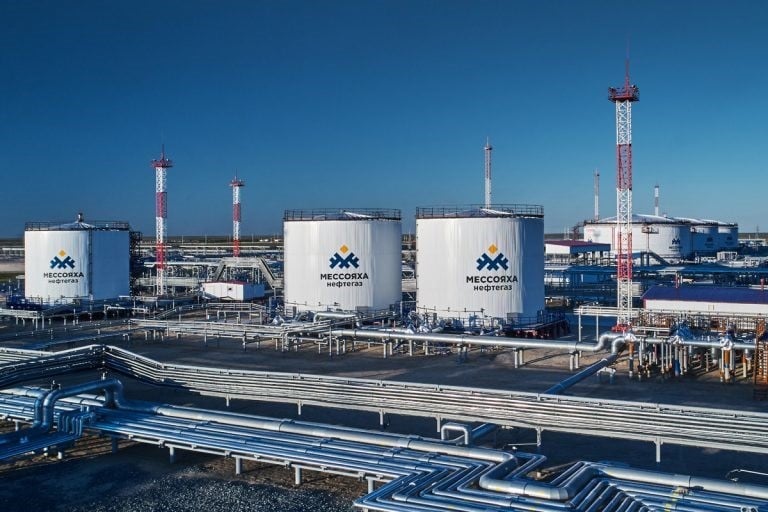 |
| Russia still has high oil revenues. (Source: Gazprom) |
The Kyiv School of Economics (KSE), which oversees Russia's oil sales, estimates that Moscow will earn $178 billion from oil sales this year and could rise to $200 billion next year.
The amount is lower than the record $218 billion that Russia earned from oil revenue in 2022, but it shows that the country has quickly found alternative customers to the EU.
Russia's benchmark Urals crude traded at $84 a barrel in October - not too far below the $90.78 average price of Brent crude in the same month, KSE added.
Oil tanker defies sanctions
Anticipating this, last year the EU, together with the Group of Seven (G7), imposed a $60/barrel price ceiling on Russian oil sold to third parties, an ambitious and unprecedented attempt by the 27-member bloc to enforce sanctions on Moscow’s oil.
But since then, Russia has bought much of its old fleet from Western companies, at high prices, creating a “shadow fleet” outside Western control.
“Dark crews” are typically tankers that do not have Western or G7 involvement in ownership, insurance, financing or any other services, said Jan Stockbruegger, a researcher at the University of Copenhagen in Denmark. “It is basically an impunity tanker,” he explained.
Western-protected and insured tankers cut Russian crude oil trade by two-thirds between April and October. Meanwhile, deals with a fleet of submarines tripled to 2.6 million barrels per day over the same period.
KSE reported that there were at least 187 tankers carrying Russian crude oil and refined petroleum products.
On November 27, Russian President Vladimir Putin signed a 70% increase in defense and security spending for next year, to $157.5 billion. The country's entire budget is worth $412 billion - 13% higher than last year thanks to higher oil revenues.
“The oil price cap is very difficult to enforce,” said economist Maria Demertzis, a senior fellow at the Bruegel think tank in Brussels. “The EU and the G7 cannot prevent a Gulf country from buying and selling energy to third countries.”
Does the US really want to be "strong"?
There are signs that the EU and the G7 are getting more serious about enforcing price caps.
In October, Washington sanctioned two tankers that used the services of a US-based firm—the first enforcement of the price cap. In November , the world’s largest economy imposed sanctions on three more Liberian-flagged tankers after finding that they were regularly transporting Sokol crude from Russia’s Far East to Indian Oil Corporation.
The EU also allows Denmark to inspect and intercept Russian oil tankers passing through its straits. Denmark was chosen largely because of its geographic location. All Russian oil shipped through the Baltic Sea—about 60% of Moscow’s total seaborne oil exports—passes through the Danish Straits on its way to international markets.
However, researcher Stockbruegger believes that such actions are still symbolic.
“We need Russian oil on the market . If we cut, global oil prices will rise and so will inflation. The important thing is that US President Joe Biden will not win the 2024 election if gas prices in the US go up. So the sanctions are designed to ensure that Russian oil still reaches the global market,” he told Al Jazeera.
Last month, data from the Institute of International Finance (IIF) showed that China, India and Türkiye have sharply increased their imports of Russian crude oil and could become transit points for crude or refined products to Western markets.
Robin Brooks, chief economist of the IIF, also noted that German automakers increased exports of cars and parts 55-fold to Kyrgyzstan, 7-fold to Kazakhstan and 4-fold to Armenia within two years.
“This increase in exports started after Russia launched its military operation in Ukraine. Most likely, this item will go to Moscow,” he argued.
Renewable energy - the EU's "savior"?
Many experts believe that Moscow's oil sales to Europe are declining and cannot be recovered.
Russian Deputy Prime Minister Alexander Novak also admitted that by the end of 2023, the country's crude oil exports to Europe had decreased from 40-45% to only 4-5%.
"Half of Russia's crude oil and oil products exported in 2023 were sold to China, while India's imports have also increased sharply over the past two years to account for 40%," he stressed.
According to Mr. Novak, the change in supply partners is due to the European embargo on Russian maritime oil supplies that will take effect on December 5, 2022, and the imposition of an oil price ceiling also has an impact.
Earlier, it was reported that in November, daily oil supplies from Russia to Türkiye reached a record level of 400 thousand barrels per day, accounting for 14% of Russia's total exports. This move was observed against the backdrop of certain difficulties in the export direction to India, where after tightening US control over the implementation of the oil price ceiling.
According to Ember - a consulting organization based in London (UK) - in the first 10 months of this year, wind and solar energy generated a record 28% of Europe's electricity, up 6 points compared to last year's performance.
“Producing electricity with solar or wind is still much cheaper than fossil fuels or nuclear power,” stressed Beatrice Petrovich, senior climate and energy analyst at Ember.
That’s good news for a continent that already pays around $2 trillion for energy imports. It’s also good news for Europe’s goal of cutting greenhouse gas emissions by 55% by 2030 compared to 1990.
However, experts say that Russia's "pocket" is not getting thinner because with the oil ban not really taking effect, the country can still export this product to the world.
Source



![[Photo] General Secretary To Lam visits exhibition of achievements in private economic development](https://vphoto.vietnam.vn/thumb/1200x675/vietnam/resource/IMAGE/2025/5/18/1809dc545f214a86911fe2d2d0fde2e8)
![[Photo] Ready for the top competitions of Vietnamese table tennis](https://vphoto.vietnam.vn/thumb/1200x675/vietnam/resource/IMAGE/2025/5/18/9c547c497c5a4ade8f98c8e7d44f5a41)



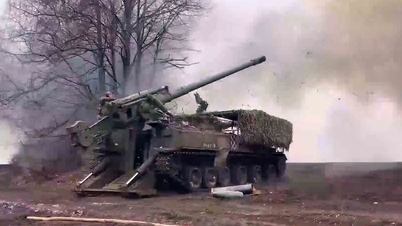




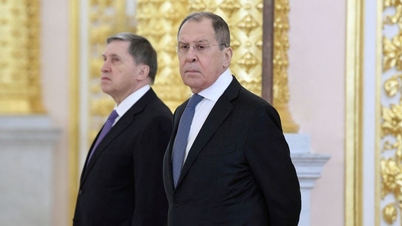

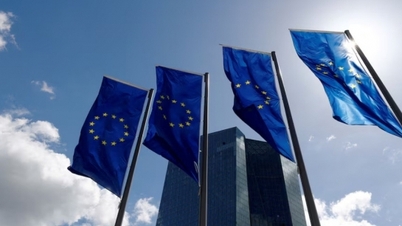















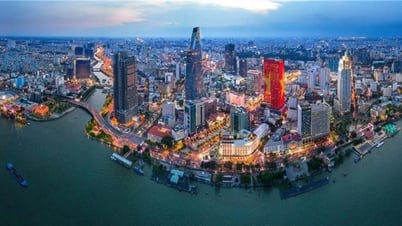

![[Photo] National conference to disseminate and implement Resolution No. 66-NQ/TW and Resolution No. 68-NQ/TW of the Politburo](https://vphoto.vietnam.vn/thumb/1200x675/vietnam/resource/IMAGE/2025/5/18/adf666b9303a4213998b395b05234b6a)
















































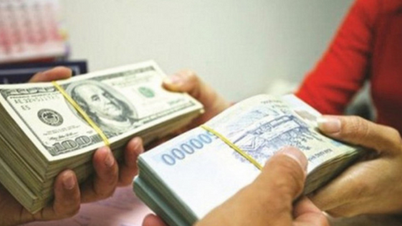





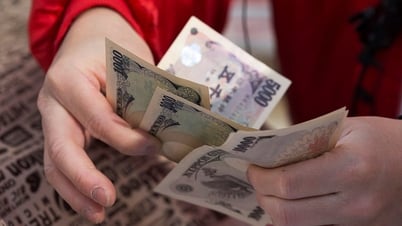









Comment (0)